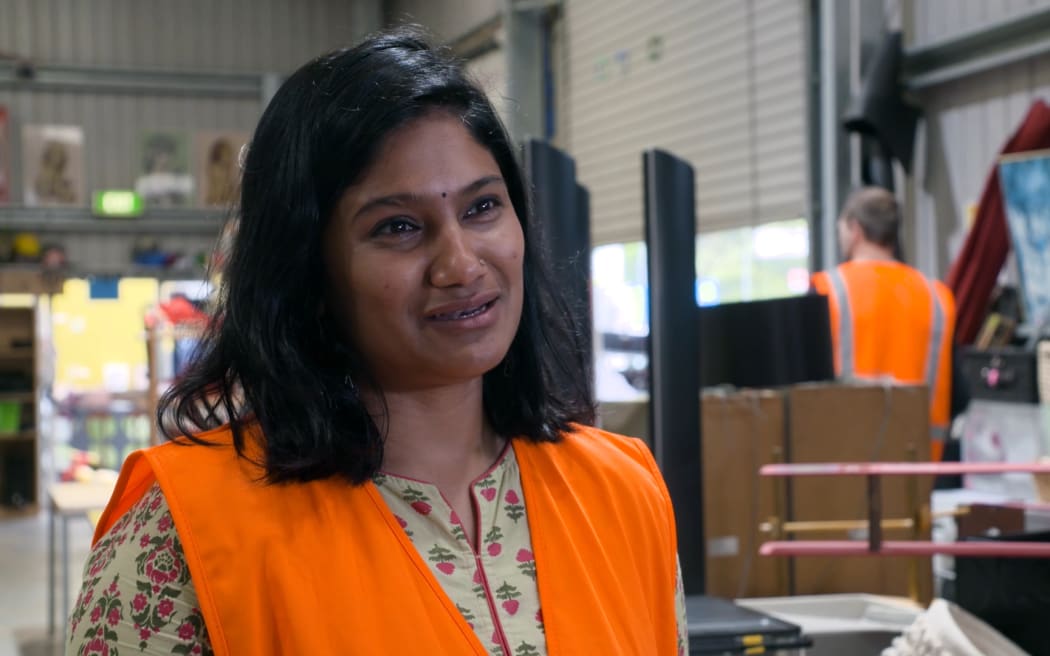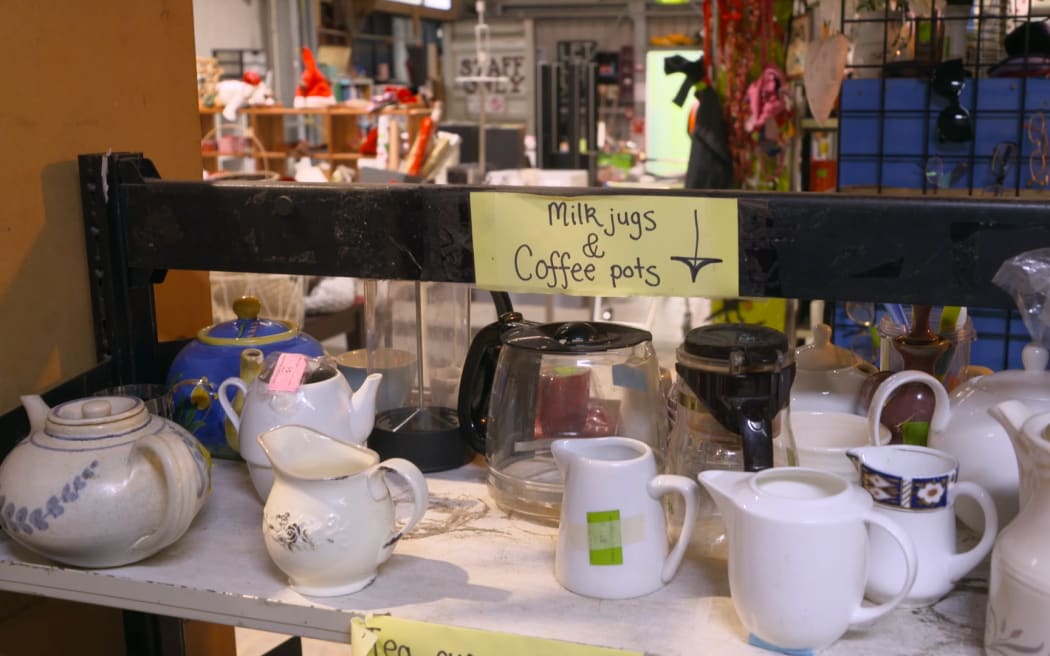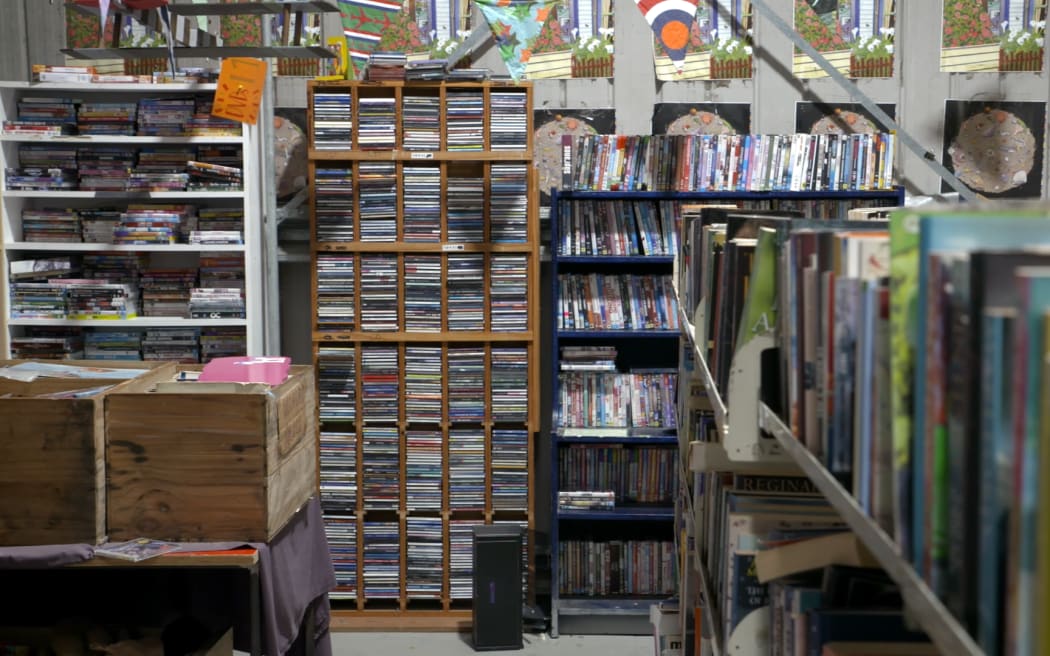Among the most memorable items to have found their way into Wellington's tip shop are a cane coffin, a giant portrait of former Prime Minister Helen Clark and an $8000 pair of 18th-century spectacles.
This month the store is turning 25, marking two and a half decades turning trash into treasure.
Opened in 1997 by locals, it had grown from two staff to 20, officially becoming part of Wellington City Council's tip operations in 2005.
Recycle centre manager Shelali Shetty said between fast fashion and society's desire for cheap, disposable goods, they were certainly not short on items.
Covid-19 had also played a part in people's changing habits.
"Some customers have honestly told us it's just panic buying, just in case we go into another lockdown and we don't have things," Shetty said.
"I guess it gives them a sense of reassurance that they have it in their garage."

Shelali Shetty said a cane coffin that sold for around $280 was one of the more unusual items that has ended up in the store. Photo: RNZ / Angus Dreaver
The most commonly donated items were crockery, utensils, pots and pans and books, she said.
"Some days it's overwhelming because people do have cartons and cartons of books, and we literally have no space, so we just have to recommend them to come back to us."
Electronics had boomed in the past two years, too.
The shop used to cut the plugs off electrical items and sell them for parts, not being able to guarantee their functionality or safety.
Now, after a very successful trial, they had a testing and tagging project underway, and items which passed the safety test were flying out the door.
Over a quarter of a century, the shop had sold countless weird and wonderful items, too.
Shetty remembered one in particular.
"There was a cane coffin that was donated to us, and we sold it for around $280."
None of the staff got a chance to try it out, but it had been a source of amusement for the time it spent instore.

The items most commonly donated to the Tip Shop are crockery, utensils, pots and pans and books. Photo: RNZ / Angus Dreaver
Another rare find was a portrait of Helen Clark painted on a plywood sheet recovered from the landfill.
It sold for $2500 to an Auckland man and his family - big fans of the prime minister - and the money went to Women's Refuge.
A pair of 18th century Martin's Margins spectacles unexpectedly sold on Trade Me for $8000, to a man who had recently lost his partner to cancer.
The glasses reminded him of her.
Waste minimisation manager Jenny Elliott said they diverted around 1000 tonnes of waste from the landfill each year.
"On an annual basis we're diverting about 500 tonnes of recyclables, and easily the same again of the material that's coming through the shop."

Books, CDs, videos and vinyl are all for sale at the Wellington Tip Shop. Photo: RNZ / Angus Dreaver
About 500 cars came through the carpark on a good weekend, whether it was to use the recycling station, drop off items or browse the Tip Shop.
Elliot said the council was looking at making it more accessible for people without a car, possibly in the form of smaller hubs around the city.
The shop attracted all sorts of customers, from students kitting out their flats, to people that visited multiple times a day.
"We've got our regulars that'll be here, queuing, waiting to get in before we open in the morning," Elliot said. "We've got lots of families that come up, just people from all walks of life."
Recent collaborations with the Sustainability Trust, Hopper Refill, Maker's Space and Nonstop Solutions had created crockery kits for community centres, students and refugees.
"At the moment we're quite constrained in terms of the site that we're on, and we've kind of grown as much as we can here."
The goal for the future was to diversify and extend the reach of the circular economy wherever they could make a difference.


